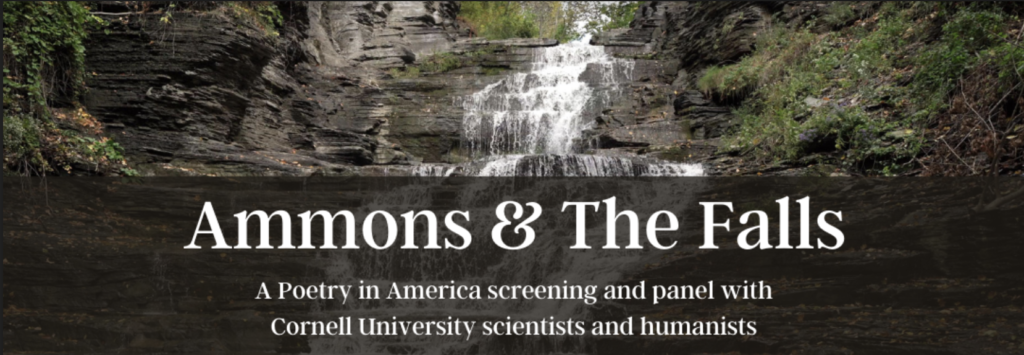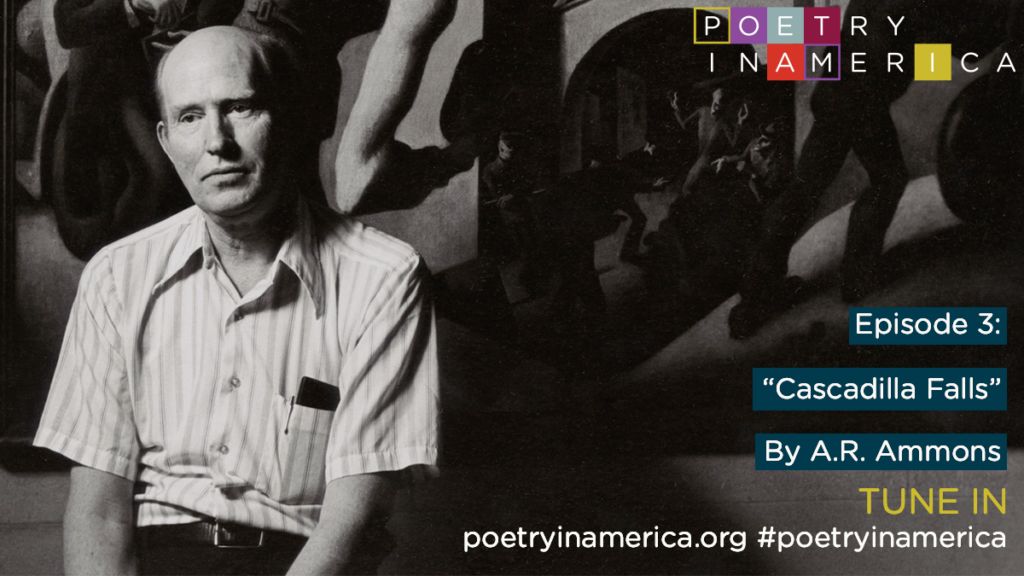Poetry in America featured in Cornell Chronicle

On April 21st, 2022, Cornell Chronicle’s David Nutt interviewed Professor of English Roger Gilbert about the special significance of A.R. Ammons’ poem “Cascadilla Falls” on Cornell’s campus.
The article, and a 5-min video filmed of Gilbert and his students, celebrates Ammons’ life and legacy at Cornell ahead of our upcoming community screening on campus, “Ammons & the Falls,” on Tuesday April 26th, 2022 at the Schwartz Center for the Performing Arts. Students and community members will watch our PBS episode as part of a multifaceted celebration of Ammons’ work, which will also include an interdisciplinary panel; an unveiling (by Gilbert) of new poem displays at Triphammer Bridge and Cascadilla Falls; and a guided tour through Cascadilla Gorge Trail by Director of the Paleontological Research Institution Warren Allmon.

A reflection on the temporal and physical dimensions of the cosmic fountainhead behind a stray stone, “Cascadilla Falls” is a monument to the influence of Cornell’s physical and intellectual landscape on Ammons’ poetry. Gilbert says, “I think it’s an important poem in terms of his relation to the Ithaca landscape, the waterfalls, the streams, the rocks and the gorges,” but it also emerges from the distinctly Cornellian “openness to seeing connections between the humanities and the sciences, between the literary imagination and the scientific mind, not imposing strict barriers between culture and nature, or science and art, but seeing all of them as flowing together at many different points.”
The poem’s interdisciplinary nature leads Gilbert to teach “Cascadilla Falls” to students in his Freshman Seminar: “It shows them that poetry has something to say about the world of science. And that may give them a perspective on it they wouldn’t get strictly from the sciences themselves.”

A personal friend and critical biographer of Ammons, Gilbert diplomatically phrases his high praise of the poet: “I don’t want to get in trouble with any of my friends and colleagues, but I would say he was the most illustrious and acclaimed poet to teach at Cornell during the 20th century.”
